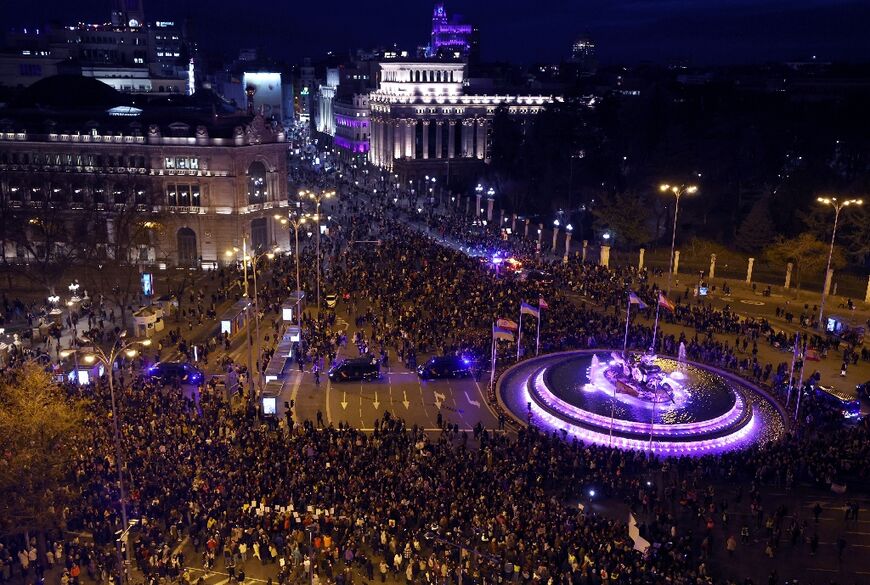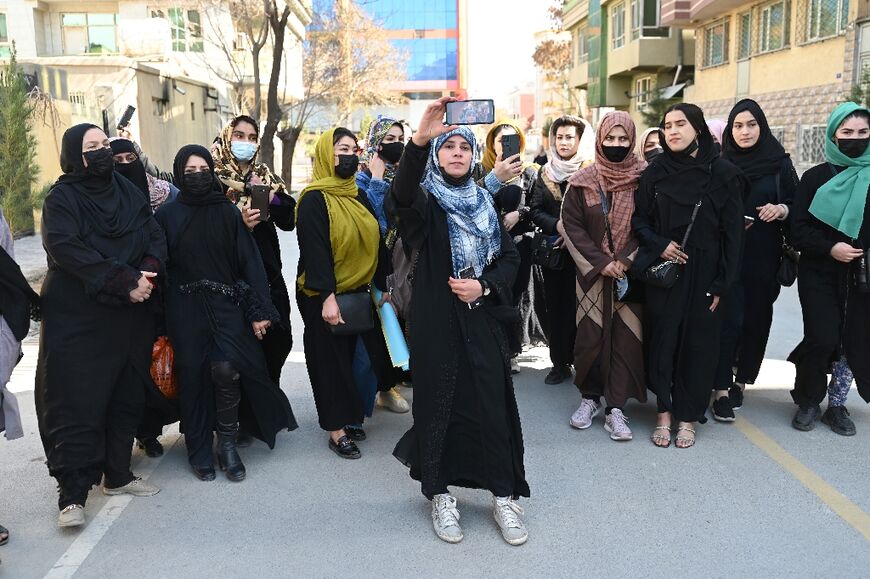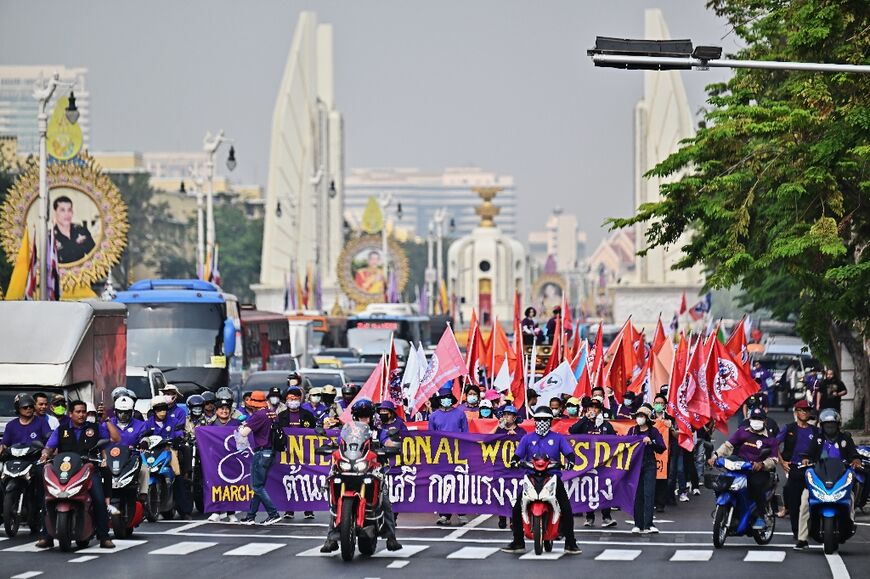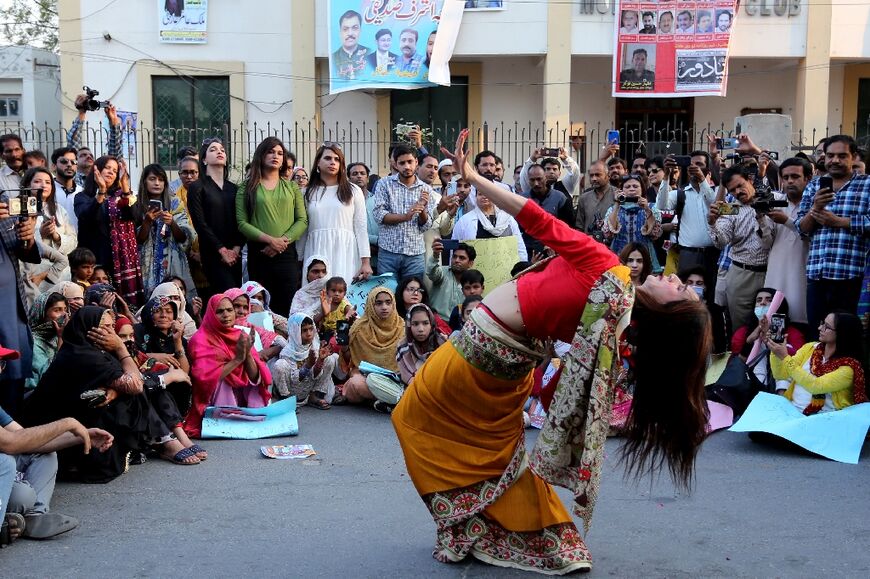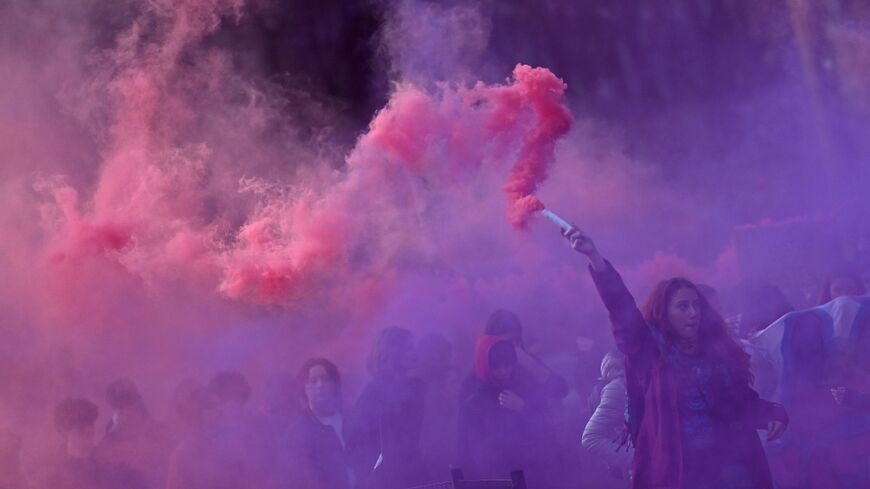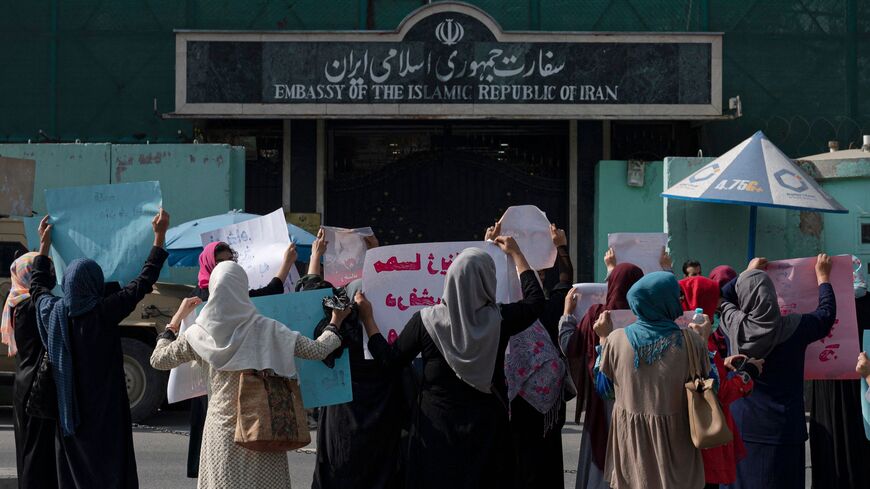Women march as rights under threat across the globe

Women hit the streets from Kabul to Mexico City on Wednesday to mark International Women's Day and stand up for rights that are coming under increasing attack.
With Afghanistan's Taliban rulers imposing what the United Nations has called a "gender apartheid" on women, Iran's repression of the Mahsa Amini protests, new US restrictions on abortion rights and the Ukraine war, protesters were fuelled by a sense that hard-won progress is being turned back.
But as thousands raised their voices and marched through cities across the world, others were forced to keep a low profile as authorities sought to block the demonstrations.
As night fell in Madrid, thousands of women, many wearing purple, packed the tree-lined boulevards of the Spanish capital, singing and shouting slogans to the beat of drums.
"My grandmothers fought for us to have certain freedoms that people are now trying to take away from us, so for me it's really important to keep up the struggle," said Mariam Ferradas, a 52-year-old kitchen worker.
In Istanbul, several thousand women defied a local ban on protests and staged a "Feminist Night March" under the watchful eye of the police, but were unable to reach Taksim Square because armed security barricaded entrances.
Whistling and chanting, they marched through the side streets, holding up flares and shouting "government resign".
- Rare protest in Kabul -
In Afghanistan, which the UN has denounced as the "most repressive country in the world for women's rights," an AFP correspondent saw some 20 defiant women holding a rare protest in the capital Kabul.
The Taliban government adheres to an austere interpretation of Islam and has effectively squeezed women and girls out of public life since seizing power in August 2021.
Thousands also joined rallies across Pakistan, despite efforts by authorities to block them over slogans addressing subjects such as divorce, sexual harassment and menstruation.
Rallies also took place in Thailand, and in Indonesia, but march organisers in Hong Kong called off a rare, authorised protest after activists were repeatedly summoned by the police.
In France, demonstrators marched in 150 towns and cities to demand "equality both at work and in life" in protests focused on the fight against unpopular pension reforms that critics say is unfair to women.
- 'Dramatic' setbacks -
In Washington, US President Joe Biden warned that "in far too many places around the world, the rights of women and girls are still under attack," pointing to Afghanistan, Russia and Iran.
And in Abu Dhabi, former US secretary of state Hillary Clinton said progress on issues affecting women and girls had been "dramatically set back" by the Covid pandemic and "organised pushback" against women.
Ukrainian President Volodymyr Zelensky, speaking in Kyiv, praised women for their role in defending the nation against the Russian invasion, pointing to those who "teach, study, rescue, heal, fight -- fight for Ukraine".
Media rights watchdog Reporters Without Borders (RSF) said women journalists have paid the price for being at the front line.
Of the 12 women journalists detained in Iran, 11 were arrested following the Amini protests, with two facing charges that could carry the death penalty, it added.
Amini, a young Iranian Kurd, died in custody last year after she was detained for allegedly violating Iran's strict dress code for women.
Meanwhile Brazil on Wednesday released a study showing the country had suffered 1,410 femicides last year -- the highest number since records began in 2015.
In Venezuela, a women's demonstration in Caracas focused on demands for a living wage amid inflation that has seen the minimum wage plummet. Thousands also demanded better economic conditions in the Argentine capital Buenos Aires.
While in Mexico City, Fatima Rios walked slowly among thousands of women demonstrators -- still feeling the effects of being shot in the leg three times two years ago by a man "who simply hates women, and is still free," she told AFP.
"My daughter and I live in fear! She recently told me: 'Mommy, and if we both die at once?" Rios said in tears.
- Abortion rights in focus -
This week, the European Union imposed sanctions on those responsible for violence and rights abuses against women in Afghanistan, Iran, Myanmar, Russia, South Sudan and Syria, with the UK following suit on Wednesday in Iran, Syria, South Sudan and Central African Republic.
Wednesday also saw feminists mobilising over abortion rights following the US Supreme Court's decision to overturn a woman's constitutional right to terminate a pregnancy.
In Paris, French President Emmanuel Macron announced his government would put forward a draft law enshrining abortion rights in the French constitution within months.
United Nations chief Antonio Guterres also called for greater protections for women online.
"Online mob violence is a direct attack on democracy and is effectively censoring women, hounding them from office, and blunting girls' ambition to step up as leaders," he said.
burs-hmw/pvh/st/bgs


